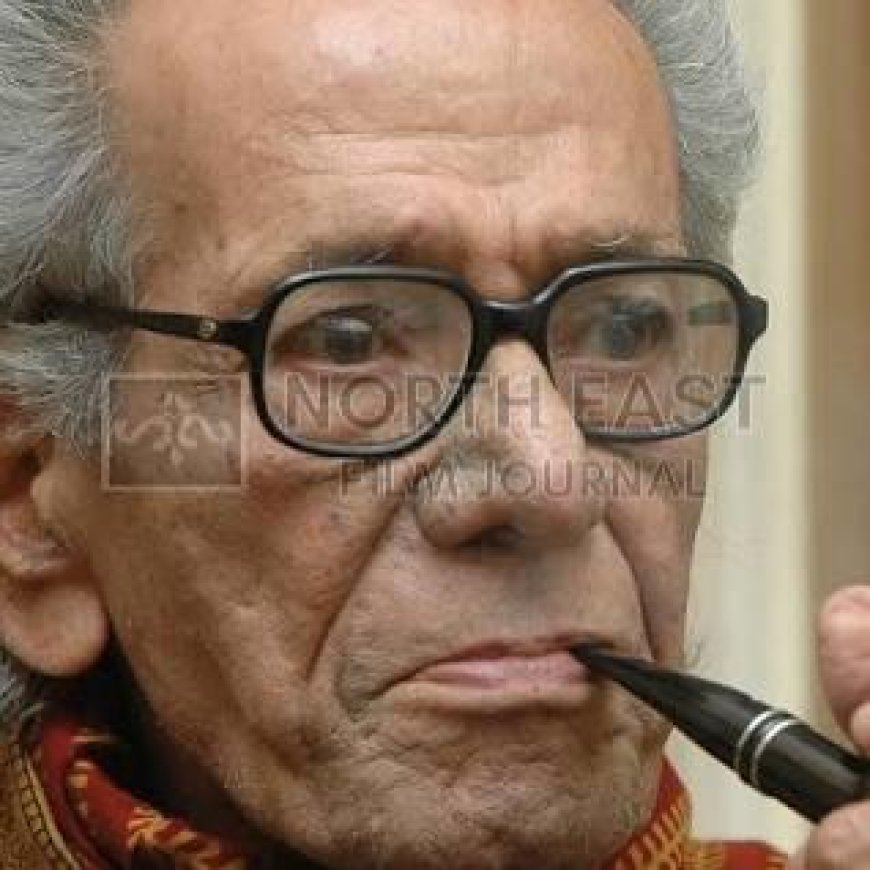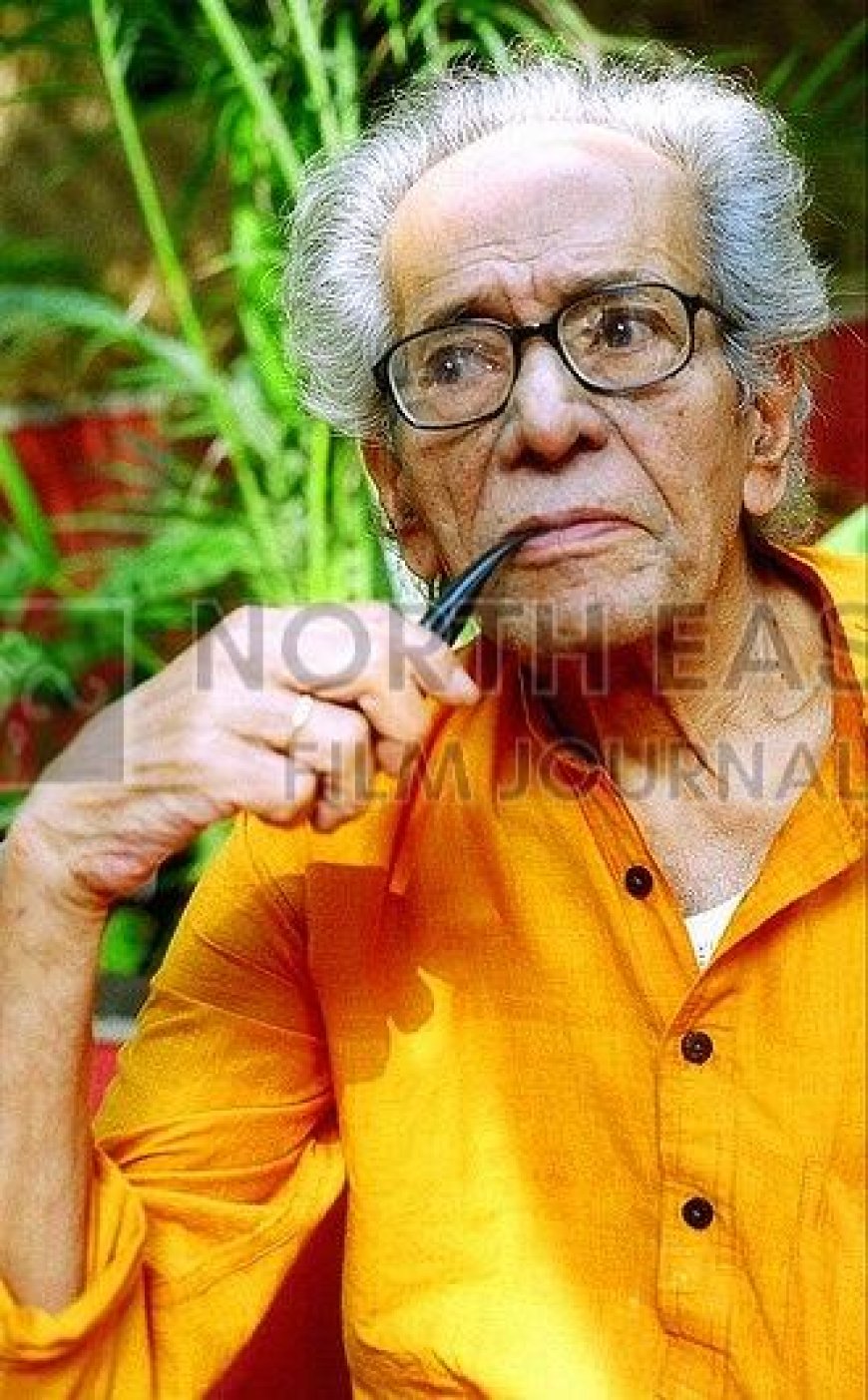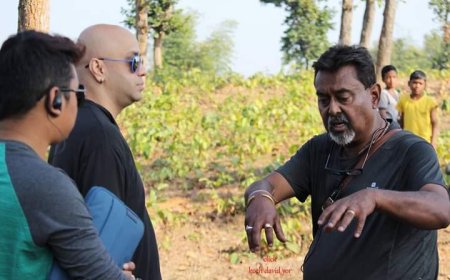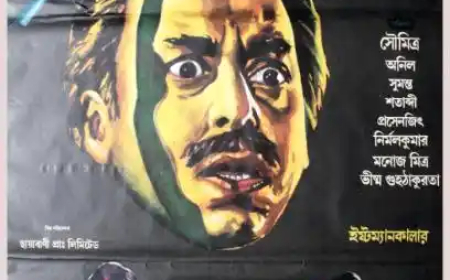CENTENARY TRIBUTE TO HABIB TANVIR (1923 - 2009)
Dr. Shoma A. Chatterji provides a centenary tribute to HABIB TANVIR on his centenary.
Habib Tanvir was born on September 1923 at Raipur, Chattisgarh. His father was from Peshawar and his mother came from Raipur. Raipur was then more or less a kind of capital of Chhatisgarh then comprised of six districts – Raipur, Bilaspur, Durg, Rajnandgaon, Raegarh and Bastar. The dialect spoken is by and large Chhatisgarhi, a derivative dialect from Hindi like Bhojpuri, Awadhi, Brij and other dialects current in U.P and other Hindi-speaking belts.
When Habib was a child, he would watch his elder brother do female roles in amateur plays once a year in Kalibari. These plays were usually performed in Urdu and belong to the Parsee theatre. The movement brought forth many playwrights who travelled across the country – to Kolkata, Amritsar, Lahore and Mumbai though many of them originated in Lucknow.
When he was around 11 years old, he took part in a piece from Shakespeare’s King John where he played Prince Arthur. He then acted in a play authored by his Persian teacher, Mohammed Isaakh who wrote a play about a young shoeshine boy, a bright child who, with patronage of a rich man, studies and goes abroad, comes back a successful man. Tanvir bagged the Thakur Pyarelal award for his performance in both plays. Having topped in the matriculation examination, Tanvir’s father hoped he would pursue a career in Indian Civil Service. His school headmaster wished he would go for a career in science. But Tanvir’s sights were set on films as a career and in 1944, he went to Mumbai in search of a career in films. But it was theatre that finally found him.
After initial education at Nagpur, he went to RADA (Royal Academy of Dramatic Arts) in 1955 and travelled across Europe in 1956-57. Before leaving for UK, he became the organizer, secretary, playwright and actor-director of IPTA during 1948-50.
In 1954 he directed Agra Bazar which he described as “the first serious experiment integrating song with drama and rural actors with urban.” Over the last decades, Agra Bazar was performed all over the country again and again.
In 1958, he formed Naya Theatre. Tanvir’s abiding contribution to contemporary culture will be his remarkable incorporation of traditions of folk and tribal theatre, music and language into his modern formal craft. The power of his plays delighted and moved audiences cutting across all class boundaries from the man on the street to the powerful elite.
He is closely linked with the idea of folk theatre. He went on to include indigenous performance forms not only to create a new theatrical language but also create historical milestones such as Agra Bazar and Charandas Chor. When he started his career, folk had not yet become the major occupation and interest in contemporary theatre scenarios. He is regarded to be the pioneer in breaking the rules of conventional, proscenium theatre to bring in folk forms and traditions into theatre. He believed and practiced that theatre of the people truly belonged to the villages and he succeeded in bringing this theatre to be performed to an urban, educated audience. The actors were a blend of folk performers of Chhatisgarh and urban actors.
Charandas Chor (1975), Tanvir’s most famous work, based on a story by Vijaydan Detha is about a typical folk hero who robs the rich much in the style of Robin Hood and evades the law until he comes up against one wall he cannot scale—his own commitment to the truth. Tanvir’s theater was not fixed to any one form as a whole. His works reaped the skills and energies rooted in folk performance and made them relevant to secular and democratic perspectives. This made his performances on stage or anywhere challenging, thought-provoking and entertaining. The play is often described to be a play of paradoxes which shows that Charandas, a thief by his own admission, is more “honest” and truthful than wealthier, ordinary and elitist people who are greedy, exploitative and corrupt. This includes his own guru who made him take five vows and Charandas did not break one even once.
During the five decades of his stint in theatre, Tanvir gave memorable productions like Agra Bazar[1954], Mitti ki Gari [1958], Gaon ka Naam Sasural Mor Naam Damaad [1973], Charandas Chor[1975], Jis Lahore Ni Dekhya [1990], and Rajrakt[2006], of which many are renowned as classics of the contemporary Indian stage. Though initially, he directed his folk plays with Hindi dialogue, he later changed them to the original Chattisgarhi dialects and though they were a bit tough to follow, this did not affect their popularity among the audience.
He also did character roles in Hindi films. One memorable role was in Sudhir Mishra’s Yeh Wo Manzil To Nahin directed by Sudhir Mishra which was a politico-historical film. Others are Prahaar directed by Nana Patekar, Charandas Chor directed by Shyam Benegal and Gandhi directed by Richard Attenborough.
Tanvir was the founder-trustee of SAHMAT and assumed the chairmanship after Bhisham Sahni’s passing away in 2003. His was one of the most militant voices in the spontaneous protest after Safdar Hashmi’s brutal murder in 1989. Habib Tanvir had earlier collaborated with Safdar Hashmi in dramatizing Premchand’s Mote Ram Ka Satyagraha. Habib was an important organizer and participant in SAHMAT’s Hum Sab Ayodhya exhibition and the Mukt Naad cultural sit-in in Ayodhya in 1993, after the demolition of the Babri Masjid.
Habib Tanvir, the legend of contemporary Indian theatre, was also a writer, poet, actor, organiser of progressive writers and people’s theatre - passed away on June 8, 2009 at Bhopal. Habib Tanvir, whose plays make him a true citizen of the world will be remembered for his abiding commitment to the values of secularism and progressive ideas.
This writer first met him backstage at a Mumbai theatre, after his group had staged Charandas Chor many years ago as part of a theatre festival. In the midst of urban angst and modern plays with and without props, Charandas Chor was a delight, with its fluctuations between satire and the politics of being, embellished with simple narrative and wonderful acting. The idea took a little time to seep in, conditioned as I was, to the completely different oeuvre of Bahurupi, Badal Sircar and Utpal Dutt. But when the reflection began, the memory remained archived in my memory.
His passing away on 8 June 2009 in Bhopal, his hometown after a three-week-long illness marks the end of innovative schools of pioneering actor-directors-innovators of Indian theatre such as Sisir Bhaduri, Utpal Dutt and Prithviraj Kapoor. A towering figure in twentieth-century Theater in India, Habib Tanvir was an actor, director, and playwright, working in Hindi and Urdu. He founded the Naya Theater in 1959, through which he created remarkable works drawing on the history and traditions of the tribal folk of Chhattisgarh. He once said,
“Unless we can go back to our own traditions and bring a world of consciousness to bear upon the knowledge of our own tradition, we cannot evolve the new kind of vehicle of expression which is necessary for a technical age, where the new demands are made.”
(Anima P., Saluting Stalwarts, Accessed on 22 Sept,2014 www.the hindu.com/features/Friday review/ theatre article).
*****
What's Your Reaction?



































































